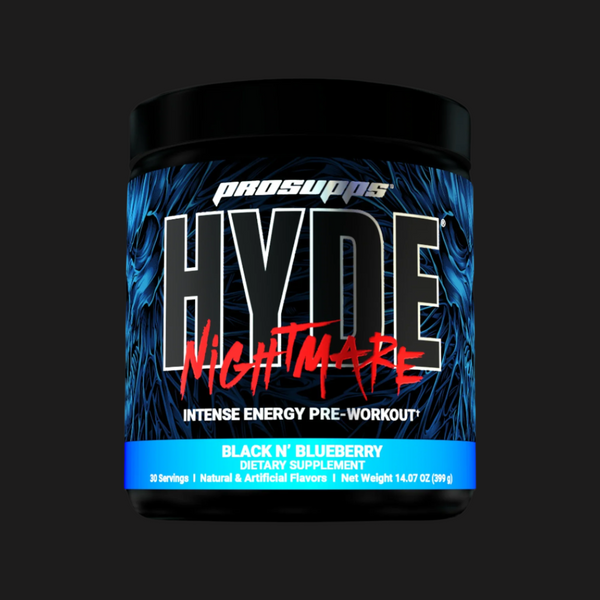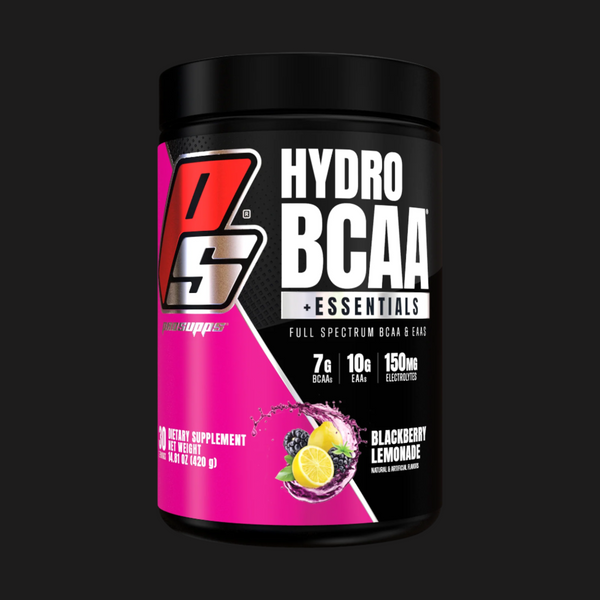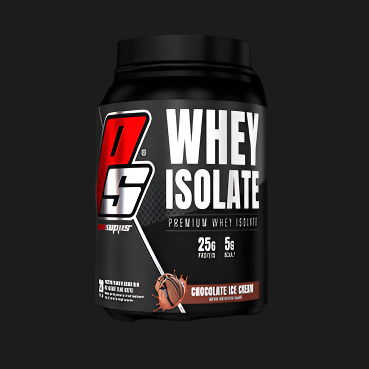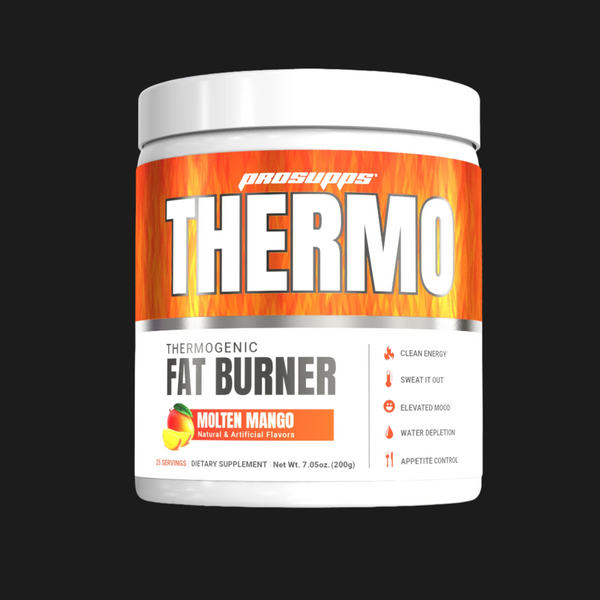
Hypertrophy vs. strength training: Understanding the differences
 Written by Pri Prunella
Written by Pri Prunella September 09, 2025
When it comes to resistance training, many people get confused between training for hypertrophy vs. strength training. Are these the same? Are you able to do both at the same time? Which one should you focus on for your goals?
This article will explain the main differences between the two, from the goals you set to the physiology, to specific workouts and ways to recover. This way, you can choose the best approach for your unique body!
What is hypertrophy?
Hypertrophy refers to the increase in muscle size due to the growth of muscle fibers. It happens when you challenge your muscles with enough volume, leading to small tears in the tissue that rebuild stronger and larger with proper recovery.
To promote hypertrophy, workouts typically include:
- Moderate to high rep ranges (6–12 reps)
- Moderate loads (60–80% of your one-rep max)
- Shorter rest periods (30–90 seconds)
- High training volume and muscle fatigue
What is strength training?
Strength training, also known as resistance or weight training, is a method of exercise that builds muscular power and the ability to exert force. It’s focused on performance (how much you can lift) rather than actual muscle size.
Key features of strength training include:
- Low rep ranges (1–6 reps)
- High loads (80–95% of your one-rep max)
- Longer rest periods (2–5 minutes)
- Lower volume, but higher intensity
This style of training results in neural adaptations, including improved coordination, motor unit recruitment, and rate of force development. That’s why it’s a cornerstone of programs for athletes, powerlifters, and anyone focused on performance. To fuel high-intensity workouts, consider using a pre-workout supplement for energy, focus, and endurance.
Strength training vs. hypertrophy: Key differences
Strength training and hypertrophy both involve resistance exercises, but they have different primary goals. Strength training focuses on increasing the ability to produce maximum force. It emphasizes lifting heavier weights for fewer repetitions, often in the range of 1–6 reps per set, with longer rest periods between sets. The goal is not necessarily to grow the muscle in size but to train the nervous system and muscle fibers to perform more efficiently and powerfully. Strength training often includes lower volume, higher intensity, and longer recovery times. Exercises like the one-rep max squat, deadlift, or bench press are common in strength-focused programs.
Hypertrophy, on the other hand, is geared toward increasing the size of the muscle fibers. It typically involves moderate to heavy loads, higher rep ranges (usually 6–12), and shorter rest periods to maximize training volume and muscular fatigue. While some strength gains occur with hypertrophy-focused training, the main objective is visual and structural growth—building more muscle mass over time. Meanwhile, hypertrophy training tends to involve more sets, more time under tension, and often includes accessory movements like bicep curls, leg presses, or cable flies that target specific muscle groups.
Comparison table: hypertrophy vs. strength training
Here is a quick look at the comparison between hypertrophy vs. strength training:
| Category | Hypertrophy Training | Strength Training |
|---|---|---|
| Goal | Muscle size | Maximum strength |
| Reps/Sets | 6–12 reps, 3–5 sets | 1–6 reps, 3–6 sets |
| Load (% of 1RM) | 60–80% | 80–95% |
| Rest Periods | 30–90 seconds | 2–5 minutes |
| Frequency | 4–6 days/week | 3–5 days/week |
| Adaptations | Muscular (fiber growth) | Neural (force production, motor control) |
| Best for | Bodybuilders, general population | Athletes, powerlifters, sport-specific training |
Can you combine strength training and hypertrophy?
The answer is, yes! In fact, many programs do both. This is where periodization comes in, a method of organizing your training into cycles that target different outcomes.
A common way to combine the two:
- Linear periodization: Start with hypertrophy (higher volume), then transition into strength (higher intensity).
- Undulating periodization: Alternate between strength and hypertrophy-focused sessions weekly or within the same week.
Example hybrid split:
- Day 1: Upper-body strength (heavy bench press, rows, overhead press)
- Day 2: Lower-body hypertrophy (moderate squats, lunges, hamstring curls)
- Day 3: Rest or active recovery
- Day 4: Lower-body strength
- Day 5: Upper-body hypertrophy
For recovery between intense sessions, don’t skip your intra-workout supplements to maintain hydration and muscle fuel.
Pros and cons of strength vs. hypertrophy training
Now, every workout style has its list of pros and cons. Here are the different ways hypertrophy and strength training could be right (or wrong) for you!
Hypertrophy training
Pros
- Improves aesthetics and muscle tone
- Enhances joint tolerance via balanced muscle growth
- Supports metabolism through lean muscle gain
Cons
- Requires longer sessions and higher total volume
- Can lead to muscle soreness and fatigue
- Slower strength improvements vs. pure strength training
Strength training
Pros
- Increases raw power and functional performance
- Supports bone density and joint health
- Great for athletes and advanced lifters
Cons
- Less muscle mass gain compared to hypertrophy
- Higher injury risk if form or recovery is neglected
- Can be intimidating for beginners
Which one is right for your goals?
Choosing between hypertrophy vs. strength training depends on your personal goals. Do you want to build muscle size and look more defined? We’d choose hypertrophy. If you are more focused on lifting heavier weights and enhancing your performance, strength training is your path. If you are just looking for general health and better body composition, then we’d recommend looking into a hybrid plan.
For beginners
Start with hypertrophy training to build foundational muscle and master form before adding heavy loads.
For advanced lifters
Use block or undulating periodization to alternate focus throughout the year.
Goal clarity is key. Don’t be afraid to reassess your training approach as your body and lifestyle change.
After each session, support muscle recovery with post-workout supplements designed to kickstart muscle repair and reduce soreness.Final thoughts: Choosing between hypertrophy vs. strength training
There’s no one-size-fits-all answer when comparing hypertrophy vs. strength training. It comes down to what you’re training for: aesthetics, performance, or both.
For most people, a combination of both methods is ideal. Hypertrophy builds the engine, while strength teaches you how to drive it powerfully.
So set your goals, track your progress, and don’t be afraid to switch things up. Your body will thank you.
References
- NSCA. (n.d.). TRAINER TIPS | HYPERTROPHY [Press-release]. https://www.nsca.com/contentassets/d27e2ba7e56949229d3eb1aaef7ddcfa/trainertips_hypertrophy_201601.pdf
- Adams, A. (n.d.). Periodization Training Simplified: A Strategic Guide | NASM blog. https://blog.nasm.org/periodization-training-simplified
- St Germain, J., Kravitz, L., PhD, & Mang, Z., PhD. (2020, June 29). Periodization for maximizing hypertrophy. IDEA Health & Fitness Association. https://www.ideafit.com/periodization-for-maximizing-hypertrophy/
- Peixoto, D. L., DE Castro, B. M., Macedo, A. G., Urtado, C. B., Lima, P. S., Leite, R. D., Navalta, J. W., & Prestes, J. (2022). Muscle Daily Undulating Periodization for Strength and Body Composition: The Proposal of a New Model. International journal of exercise science, 15(4), 206–220. https://doi.org/10.70252/JDHQ8772
GET LEAN
 Why You're Struggling
Can't Lean Out? Here's Why You're Struggling
Why You're Struggling
Can't Lean Out? Here's Why You're Struggling
We all know the feeling. You’ve been working hard in the gym, sticking to your diet and getting in your...
 Weight Loss
Choosing the Best Protein Powder for Weight Loss
Weight Loss
Choosing the Best Protein Powder for Weight Loss
Struggling to shed body fat and lean out? You might need to focus more on your nutrition, specifically your protein...
 Weight Loss
9 Ways to Speed Up Your Weight Loss and Burn More Fat
Weight Loss
9 Ways to Speed Up Your Weight Loss and Burn More Fat
Weight loss is a major goal for more than 40 percent of Americans. Is it something you’re working toward, too?
 Workout Routine
10 Tips for Building a Sustainable Workout Routine
Workout Routine
10 Tips for Building a Sustainable Workout Routine
Starting a fitness journey is an exciting time, but maintaining a sustainable workout routine can be challenging. From setting realistic...



























